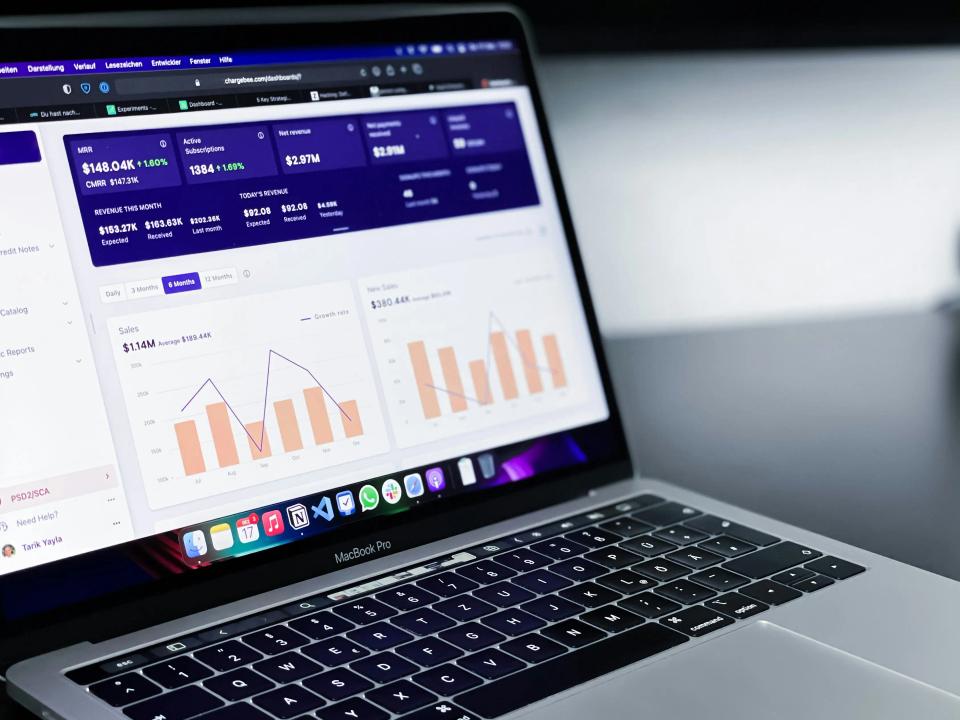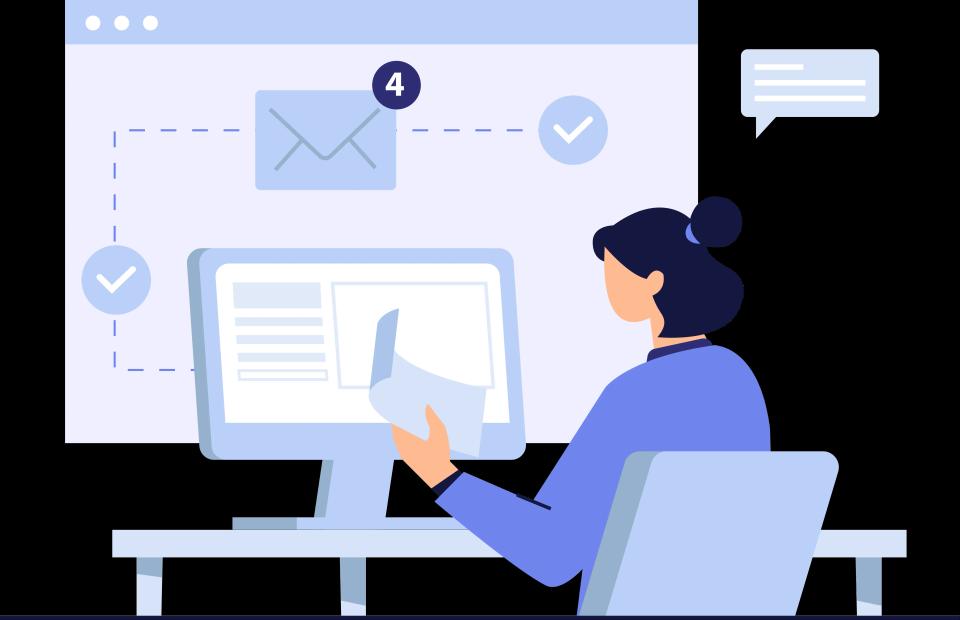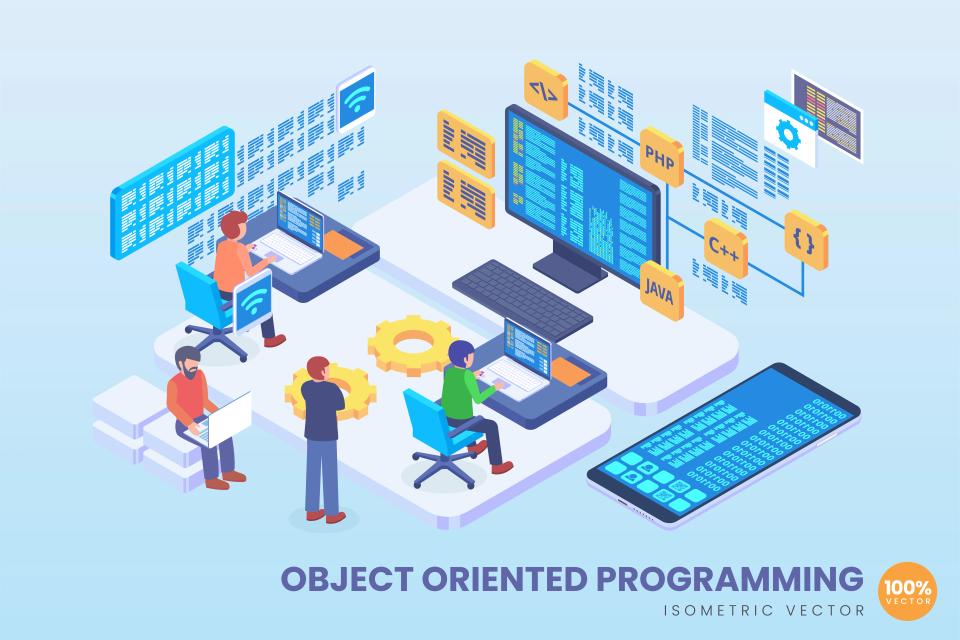Tired of the feast-or-famine client cycle? Does the thought of finding your next high-value consulting gig keep you up at night? You're not alone. In today's crowded marketplace, standing out is tougher than ever, but what if you could tap into a stream of clients already looking for exactly what you offer?
This isn't a far-fetched dream. It's the reality Google Ads can deliver for your consulting firm. Imagine prospects, actively searching for solutions you provide, landing right on your digital doorstep. This guide is your roadmap to making that happen, turning uncertainty into a predictable flow of qualified leads.
We'll walk you through everything, from laying the essential groundwork and building your first high-impact campaign to crafting irresistible ad copy and measuring what truly matters. Get ready to transform your client acquisition strategy.
Introduction: Why Google Ads is a Must-Have for Modern Consulting Firms
The Challenge: Standing Out in a Competitive Consulting Landscape
The consulting world is fiercely competitive, isn't it? Traditional outreach methods like cold calling or networking events can feel like shouting into the void, yielding unpredictable, often meager, results. You need a system, a reliable engine that consistently brings potential clients to you. Without a predictable lead generation pipeline, growth stagnates, and your firm's true potential remains untapped, leaving you vulnerable to market shifts and aggressive competitors.
Many firms struggle, relying on word-of-mouth or sporadic referrals, which are great but hardly scalable. This reactive approach puts you on the back foot, constantly chasing rather than attracting. The modern consulting firm needs to be where its clients are looking, and increasingly, that's online.
The core desire for security and dominance in your niche demands a proactive strategy. You need to be found when a company faces a problem your expertise can solve. This is where digital demand generation becomes not just an option, but a necessity.
The Solution: The Power of Intent-Based Advertising with Google Ads
Enter Google Ads, your direct line to motivated prospects. Think about it: when a business leader needs specialized advice – say, "IT security consultant for financial services" – where do they turn first? Google. Google Ads allows you to place your firm directly in front of these high-intent searchers at the exact moment they're looking for your expertise.
This isn't about interrupting people; it's about providing solutions when they're actively seeking them. The beauty of Google Ads lies in its precision. You can target specific industries, locations, and even the types of problems your ideal clients are trying to solve. According to Google Ads Help, advertisers who improve their Ad Strength from "Poor" to "Excellent" by creating highly relevant ads see an average of 12% more conversions.
The results are targeted, measurable, and scalable. You control the budget, you see the data, and you can adjust your strategy for optimal performance. This means a predictable flow of leads, allowing your consulting firm to grow with confidence and authority.
What This Guide Will Cover: Your Roadmap to Google Ads Success
Feeling overwhelmed? Don't be. This comprehensive guide is designed to demystify Google Ads for consulting firms like yours. We'll break down the process into manageable, actionable steps, empowering you to launch and manage campaigns that deliver real results.
First, we'll cover the crucial pre-campaign essentials, from defining clear goals and understanding your ideal client to setting a realistic budget and the vital role of landing pages. Then, we'll dive into building your first campaign, covering campaign types, strategic keyword research, and effective structuring. You'll also learn to craft compelling ad copy that converts, leverage ad extensions, and master advanced targeting techniques.
Finally, we'll explore how to measure success through key metrics, optimize for peak performance, and avoid common pitfalls. By the end, you'll have a clear understanding of how to make Google Ads a powerful client acquisition tool for your consulting practice.
Laying the Groundwork: Pre-Campaign Essentials for Consulting Firms
Defining Your Goals: What Do You Want to Achieve?
Before you spend a single penny on Google Ads, ask yourself: what does success look like? Are you aiming to flood your calendar with consultation bookings? Perhaps your goal is to generate leads through valuable content like whitepaper downloads, positioning your firm as a thought leader.
Maybe you're looking to build brand awareness within specific, lucrative industries, or promote a new, niche consulting service that sets you apart. HubSpot emphasizes that defining clear campaign goals is paramount to avoid wasted ad spend and unfocused efforts. Without clear objectives, your campaigns will lack direction, and measuring true ROI becomes impossible.
Your goals will dictate your campaign strategy, from the keywords you target to the ad copy you write and the landing pages you use. Be specific. "More leads" isn't a goal; "20 qualified consultation requests per month for our HR consulting services" is.
Understanding Your Ideal Client Persona (ICP) for Consulting
Who are you trying to reach? You can't hit a target you can't see. Developing a detailed Ideal Client Persona (ICP) is critical for effective Google Ads targeting. Think beyond basic demographics.
What industries do your best clients operate in? What is their typical company size? What are the job titles of the decision-makers you need to influence – CEOs, VPs of Operations, IT Directors? Most importantly, what are their biggest pain points, the burning problems that your consulting services are uniquely positioned to solve? Understanding these pains allows you to speak their language and offer irresistible solutions.
Knowing your ICP ensures your ad budget is spent reaching people who can actually become clients. This deep understanding fuels every aspect of your campaign, from keyword selection to ad messaging, ensuring relevance and resonance.
Setting a Realistic Budget & Understanding Potential ROI
"How much should I spend?" It's a common question, and the answer is: it depends. Factors like the competitiveness of your niche and the geographic areas you're targeting will influence your Cost Per Click (CPC). Some consulting keywords can be pricey, but the potential return can be enormous.
Consider the Lifetime Value (LTV) of a consulting client. A single client secured through Google Ads could generate tens or even hundreds of thousands of dollars in revenue over time. HubSpot notes that understanding PPC budgeting and potential CPC benchmarks is crucial for setting realistic expectations.
Start with a budget you're comfortable with, perhaps for a pilot campaign, and be prepared to scale as you see positive results. The goal isn't to spend the least; it's to achieve the highest possible Return on Investment (ROI) by acquiring high-value clients profitably.
The Crucial Role of High-Converting Landing Pages
Listen closely: sending highly qualified traffic from your Google Ads to a generic homepage is like inviting a VIP to a messy office. It kills conversions. Your landing pages must be specifically designed to convert ad clicks into leads. Each ad group, or even each ad, should ideally point to a unique landing page tailored to that specific service or offer.
A high-converting landing page features a crystal-clear value proposition, compelling Calls to Action (CTAs), and vital trust signals like client testimonials, case studies, or industry certifications. According to WebFX, effective landing pages are clean, focused, and guide the user towards a single conversion goal. This focus is essential for maximizing your ad spend.
Don't let a poor landing page experience sabotage your Google Ads investment. At CaptivateClick, we specialize in designing and optimizing landing pages that turn clicks into clients, ensuring your message resonates and drives action.
Building Your First Google Ads Campaign: A Step-by-Step Guide for Consultants
Choosing the Right Campaign Type
Google Ads offers various campaign types, but for consulting firms focused on lead generation, one stands out: Search Campaigns. These are your bread and butter. Why? Because they capture active search intent – people literally typing their needs into Google.
Display Campaigns can be useful for brand awareness and remarketing (reaching people who've already visited your site), but use them cautiously for initial lead generation as they target more passively. Video Campaigns on YouTube are excellent for showcasing thought leadership and building your brand's authority, which can be powerful for consultants in the long game. KlientBoost provides a detailed guide on Google Search Ads setup that underscores their importance for direct response.
For most consulting firms, starting with a well-structured Search Campaign is the quickest path to attracting clients actively seeking your expertise. This direct approach aligns perfectly with the desire for immediate, tangible results.
Strategic Keyword Research for Consulting Services
Keywords are the lifeblood of your Search campaigns. You need to get inside the heads of your ideal clients. What phrases are they typing into Google when they need help? Think high-intent keywords like "management consultant for manufacturing," "IT strategy consulting services," or "financial advisor for small business [city]."
Don't forget long-tail keywords – longer, more specific phrases like "how to improve supply chain efficiency with a consultant." These often have lower search volume but can indicate very strong buying intent and face less competition. Tools like SEMrush offer a PPC Toolkit that includes features for keyword gap analysis, allowing you to see what keywords your competitors are successfully bidding on.
Understanding and utilizing different keyword match types (broad, phrase, exact) is also crucial. This helps control who sees your ads, ensuring you're not wasting money on irrelevant clicks. Effective keyword research ensures your ads are shown to the right people at the right time.
Structuring Your Campaigns & Ad Groups
Organization is key to a successful Google Ads account. Don't just dump all your keywords into one campaign and hope for the best. Structure your campaigns logically, typically by the different consulting services you offer (e.g., Strategy Consulting, HR Consulting, IT Consulting).
Within each campaign, create tightly themed ad groups. Each ad group should contain a small set of closely related keywords and ads that are highly relevant to those keywords. For example, within an "IT Consulting" campaign, you might have ad groups for "Cybersecurity Consulting," "Cloud Migration Services," and "Data Analytics Solutions."
This granular structure improves your Quality Score (Google's rating of ad relevance), which can lead to lower CPCs and better ad positions. A well-structured account is easier to manage, analyze, and optimize, giving you greater control over your firm's destiny.
Location Targeting: Reaching Your Ideal Geographic Market
Where are your ideal clients located? Google Ads allows you to precisely target geographic areas, ensuring your ads are only shown to prospects in relevant locations. Whether you serve clients locally, regionally, nationally, or even internationally, effective location targeting is essential.
You can target entire countries, specific regions or states, cities, or even down to a ZIP code level. This is particularly important for consultants who offer in-person services or specialize in regional markets. Why waste your budget showing ads to people in London if your practice is based in and serves only New York?
Refine your targeting to match your service area and business goals. This simple step can significantly improve your campaign's efficiency and relevance, ensuring your message reaches those most likely to convert into valuable clients.
Bidding Strategies for Consulting Leads
How much are you willing to pay for a click or a conversion? Google Ads offers various bidding strategies, from Manual CPC (where you set your own bids) to automated options like Maximize Conversions or Target CPA (Cost Per Acquisition). Each has its pros and cons for consulting firms.
Manual CPC gives you maximum control, which can be beneficial when starting out or for highly specialized niches. Automated bidding leverages Google's machine learning to optimize bids for your goals, which can save time and potentially improve performance once you have enough conversion data. WordStream often discusses ROI-focused bidding strategies in their SEM consulting advice.
There's no one-size-fits-all answer. You might start with Manual CPC to gather data and then experiment with automated strategies as your campaign matures. The key is to choose a strategy aligned with your goals and budget, and to monitor performance closely.
Crafting Compelling Ad Copy & Creatives That Convert Consulting Leads
Writing Irresistible Headlines & Descriptions
Your ad copy is your 3-second elevator pitch. It needs to grab attention, resonate with your ideal client's pain points, and compel them to click. Your headlines are paramount – make them benefit-driven and include your most potent keywords. Think about what keeps your ideal client awake at night.
In your descriptions, expand on the solution you offer. Highlight your Unique Selling Proposition (USP) – what makes your consulting firm the obvious choice? Directly address their anxieties and aspirations. Use strong Calls to Action (CTAs) like "Book Your Free Consultation Now" or "Download Our Exclusive Industry Report." According to Google Ads Help, using responsive search ads with multiple headlines and descriptions allows AI to find the best combinations, often leading to better performance.
Remember to weave your target keywords naturally into the ad copy. This not only improves relevance but also signals to the searcher that your ad is exactly what they're looking for, satisfying their urgent need for a solution.
Leveraging Ad Extensions to Maximize Visibility & CTR
Want more prime real estate on the search results page? Ad extensions are your secret weapon. These powerful additions provide extra information and links within your ad, making it larger, more informative, and more likely to be clicked. Best of all, they often don't cost extra per click but can significantly boost your Click-Through Rate (CTR).
Shopify’s guide on Google Ad Extensions highlights several valuable options for service businesses. Sitelink Extensions can direct users to specific service pages, your 'About Us' page, or compelling case studies. Callout Extensions let you highlight key benefits like "Expert Advice," "Proven Results," or "Certified Professionals." Call Extensions add a clickable phone number, perfect for encouraging direct contact.
If you have a physical office or serve a local area, Location Extensions are invaluable. And for direct lead capture from the search results page itself, Lead Form Extensions can be incredibly effective, reducing friction for busy executives. Using these extensions signals authority and makes it easier for prospects to take the next step.
Best Practices for Display Ad Creatives (If Applicable)
If you venture into Display Campaigns or Remarketing, your visual creatives are crucial. Unlike text-based search ads, display ads rely on imagery and concise messaging to capture attention on websites across the Google Display Network. Your ads need to be professional, on-brand, and instantly communicate your value.
Use high-quality, relevant imagery that resonates with your target audience – think aspirational images of success or clear depictions of the problems you solve. Ensure your branding (logo, colors) is prominent and consistent. Keep your messaging brief and focused on a single, compelling benefit or offer.
A cluttered or unprofessional ad will damage your credibility faster than you can say "low conversion rate." At CaptivateClick, our team excels in creating ad creatives and branding elements that not only look great but are strategically designed to drive engagement and conversions for professional services.
Advanced Targeting & Segmentation for Precision Outreach
Audience Targeting Options:
Beyond keywords, Google Ads offers powerful audience targeting options to refine who sees your ads, ensuring you reach the most qualified prospects. For consulting firms with often longer sales cycles, Remarketing Lists are absolutely essential. These allow you to show targeted ads to people who have previously visited your website but didn't convert, keeping your firm top-of-mind as they move through their decision-making process.
In-Market Audiences let you reach users Google has identified as actively researching or planning to purchase services like yours (e.g., "Business Services > Consulting"). Custom Audiences offer even more granularity, allowing you to build audiences based on specific interests, URLs they've visited (even competitor sites, in some cases), or apps they use. If you have a substantial list of existing clients or prospects (and ensure compliance with privacy regulations), Customer Match allows you to upload this list and target (or exclude) these individuals.
Search Engine Land suggests that for B2B, combining Google's "what" targeting (keywords) with LinkedIn's "who" targeting (demographics) can be powerful, and similar principles apply within Google's own audience tools. Layering these audiences onto your search campaigns can significantly improve relevance and ROI, ensuring your expertise reaches those who truly need it and are ready to engage.
Demographic Targeting: Refining Your Reach
While B2B targeting often focuses more on firmographics (company size, industry) and job roles, demographic targeting in Google Ads (age, gender, parental status, household income) can still play a role, especially when layered with other targeting methods. For instance, if your consulting services are particularly relevant to seasoned executives, you might adjust bids for certain age ranges.
However, it's crucial to use demographic targeting with caution in a B2B context. The decision-maker for a consulting engagement might not fit a narrow demographic profile. According to Search Engine Land, while LinkedIn offers more robust B2B demographic targeting, Google's demographic data can still be used to refine audiences when combined with strong intent signals from keywords and in-market segments.
The key is to use demographic data to inform, not dictate, your targeting. Test and analyze performance to see if certain demographic segments convert at a higher rate for your specific consulting services, and adjust your strategy accordingly. This precision ensures you're not just reaching people, but the right people.
Measuring Success: Key Metrics & KPIs for Consulting Campaigns
Setting Up Conversion Tracking: The Non-Negotiable
If you take away only one thing from this section, let it be this: conversion tracking is non-negotiable. Without it, you're flying blind, throwing money into the wind, and hoping for the best. You absolutely must track the actions that matter to your consulting business.
What constitutes a conversion for your firm? It could be a submitted contact form for a consultation request, a download of a high-value whitepaper, a call initiated directly from your ad, or even views of a key "thank you" page after a form submission. Setting up conversion tracking in Google Ads and linking it to your Google Analytics allows you to see exactly which keywords, ads, and campaigns are driving these valuable actions.
This data is the foundation of all optimization efforts. It tells you what's working, what's not, and where to focus your budget for maximum impact. As Optmyzr's approach to PPC management efficiency highlights, data-driven decisions are key.
Essential Metrics to Monitor:
Once conversion tracking is in place, several key metrics will tell the story of your campaign's performance. Keep a close eye on Impressions (how many times your ad was shown) and Clicks, which together give you your Click-Through Rate (CTR) – a measure of ad relevance. A low CTR might indicate your ad copy isn't compelling or your keywords are mismatched.
Crucially, monitor your Conversion Rate (the percentage of clicks that result in a conversion) and your Cost Per Conversion (or Cost Per Lead - CPL). These tell you how efficiently your campaigns are generating actual business opportunities. Also, pay attention to your Quality Score, a Google metric from 1-10 that estimates the quality of your ads, keywords, and landing pages; higher Quality Scores can lead to lower costs and better ad positions. Saffron Edge notes that expert management can lead to Quality Score improvements of up to 30%.
Don't forget Search Impression Share, which tells you what percentage of eligible impressions your ads actually received. If this is low, you might be losing out to competitors due to budget constraints or low ad rank. These metrics provide the vital signs of your campaign's health.
Analyzing Performance & Making Data-Driven Decisions
Collecting data is only half the battle; the real power comes from analyzing it and making informed decisions. Regularly review your Google Ads reports. Which keywords are driving conversions at an acceptable CPL? Which ones are just eating up your budget with no return?
Connect your Google Ads data with insights from your CRM if possible. This allows you to track leads all the way through your sales funnel, understanding not just which campaigns generate leads, but which ones generate actual paying clients. This closed-loop reporting is the gold standard for B2B marketing.
Use this analysis to refine your targeting, pause underperforming keywords or ads, reallocate budget to what's working, and test new approaches. This continuous loop of measurement, analysis, and optimization is what separates successful Google Ads campaigns from costly failures.
Optimizing for Peak Performance: Continuous Improvement Strategies
Regular A/B Testing
Think your ad copy is perfect? Think again. Continuous A/B testing is the secret sauce to unlocking ever-improving results. You should always be testing variations of your ad copy – different headlines, descriptions, and calls to action – to see what resonates most with your target audience.
Don't stop at ad copy. Test different landing page elements: headlines, imagery, form fields, button colors, and layouts. Even small changes can sometimes lead to significant improvements in conversion rates. You can also A/B test different bidding strategies or targeting options to find the optimal setup for your consulting firm.
The key is to test one variable at a time so you can clearly attribute any performance changes. As Optmyzr's platform enables, systematic testing and optimization are crucial for PPC success. This relentless pursuit of "what works better" will keep your campaigns sharp and your ROI climbing.
Managing Negative Keywords
Just as important as choosing the right keywords is excluding the wrong ones. Negative keywords prevent your ads from showing for irrelevant searches, saving you money and improving the quality of your clicks. For consulting firms, this is absolutely critical.
Think about searches that might include your service terms but indicate no commercial intent, such as "free consulting advice," "consulting jobs," "how to become a consultant," or "consulting course." Adding terms like "free," "jobs," "salary," "course," and "template" (unless you offer one as a lead magnet) to your negative keyword list can filter out a huge amount of unqualified traffic. HubSpot strongly warns against overlooking negative keywords, as it wastes budget on unqualified leads.
Regularly review your Search Terms Report (more on that next) to identify new negative keyword opportunities. This ongoing refinement ensures your budget is laser-focused on attracting genuine prospects.
Bid Adjustments
Not all clicks are created equal. Some may be more valuable than others based on the user's device, location, the time of day, or the audience they belong to. Google Ads allows you to make bid adjustments to increase or decrease your bids for these specific segments.
For example, if you find that leads generated from mobile devices convert at a higher rate, you might increase your bids for mobile users. If your analytics show that prospects are more likely to search for your consulting services during business hours, you could bid more aggressively during those times. Similarly, if a particular remarketing audience is performing exceptionally well, you can increase your bids for that audience.
These adjustments allow you to optimize your spend strategically, allocating more budget to the segments that are most likely to drive conversions and deliver a strong return for your consulting practice. This level of control helps you dominate the moments that matter most.
Reviewing the Search Terms Report
The Search Terms Report is a goldmine of information, yet it's often overlooked. This report shows you the actual search queries people typed into Google that triggered your ads. It's different from your keyword list, which is what you think people will search for.
Regularly reviewing this report is crucial for two main reasons. First, it helps you identify new, relevant keywords that you might not have thought of, which you can then add to your ad groups. Second, and just as importantly, it reveals irrelevant search terms that are triggering your ads, allowing you to add them as negative keywords. This was a key point from the HubSpot guide on avoiding irrelevant ads.
This continuous feedback loop of reviewing search terms helps you refine your targeting, improve ad relevance, and ensure your budget is spent as efficiently as possible, attracting only the most qualified prospects for your consulting services.
Common Pitfalls to Avoid for Consulting Firms Using Google Ads
Broad Keyword Targeting & Generic Ad Copy
One of the quickest ways to waste your Google Ads budget is by using overly broad keywords. Targeting a term like "business consulting" without further refinement will attract a wide range of irrelevant searches, draining your funds. Similarly, generic ad copy that doesn't speak directly to a specific pain point or offer a clear solution will get ignored.
Your keywords need to be specific to the services you offer and the problems you solve. Your ad copy must be compelling, benefit-driven, and tailored to the intent behind those keywords. HubSpot warns that generic CTAs and mismatched keywords significantly undermine campaign performance.
Avoid these by conducting thorough keyword research, including long-tail terms, and by crafting ad copy that resonates deeply with your ideal client persona. Precision is paramount for success.
Neglecting Landing Page Experience
You can have the best keywords and the most compelling ad copy, but if your landing page doesn't deliver, your campaign will fail. Sending traffic to your homepage or a poorly designed landing page is a common and costly mistake. Your landing page must be a seamless extension of your ad, with a clear message, strong call to action, and an easy way for prospects to convert.
A high bounce rate from your landing pages is a red flag. It means visitors aren't finding what they expected or are confused by the page. Ensure your landing pages are mobile-friendly, load quickly, and are laser-focused on a single conversion goal. As highlighted by HubSpot's advice on avoiding irrelevant ads, a mismatch between ad and landing page content is a recipe for failure.
Invest in dedicated, optimized landing pages for your campaigns. This is where the conversion happens, turning a click into a valuable lead for your consulting firm.
Not Tracking Conversions Accurately
Flying blind is no way to manage an advertising budget. Yet, many firms run Google Ads campaigns without proper conversion tracking in place. If you don't know which keywords, ads, or campaigns are generating leads, how can you possibly optimize for better results?
You must track every meaningful action, whether it's a form submission, a phone call, or a download. Without this data, you're essentially guessing, and guessing is expensive. Accurate conversion tracking is the bedrock of any successful PPC campaign.
Ensure your tracking is set up correctly from day one and that you're measuring what truly matters to your business growth. This data empowers you to make smart, profitable decisions.
"Set It and Forget It" Mentality
Google Ads is not a crockpot. You can't just set it up and walk away, expecting delicious results weeks later. Successful campaigns require ongoing monitoring, analysis, and optimization. The digital advertising landscape is dynamic; competitor strategies change, search trends evolve, and your own business goals may shift.
A "set it and forget it" approach is a surefire way to waste money and miss opportunities. HubSpot specifically cautions against this, stressing the need for at least weekly performance reviews for consulting accounts. You need to be actively managing your bids, refining your keywords, testing new ad copy, and analyzing performance data.
Commit to regular campaign management, or partner with experts who can do it for you. This vigilance ensures your investment continues to deliver.
Ignoring Negative Keywords
We've touched on this before, but it bears repeating because it's such a common and costly error. Failing to use negative keywords means your ads will show for all sorts of irrelevant searches, attracting clicks from people who will never become clients. This is like inviting unqualified candidates to a job interview – a waste of everyone's time and your money.
Searches for "free consulting," "consulting jobs," or "how to start a consulting business" are not from potential clients. Adding terms like "free," "jobs," "salary," "examples," and "templates" to your negative keyword list is crucial for filtering out this noise. According to HubSpot, overlooking negative keywords is a primary cause of wasted ad spend.
Make reviewing your search terms report and adding negative keywords a regular part of your optimization routine. This simple habit can dramatically improve your campaign's ROI.
F. Unrealistic Budget Expectations
While Google Ads can deliver incredible ROI, it's not magic. Some consulting niches are highly competitive, and CPCs can reflect that. Expecting to generate a flood of high-value clients with a shoestring budget in a competitive market might lead to disappointment.
It's important to have realistic expectations about the investment required and the time it might take to see significant results, especially when starting. Understand the average CPCs in your niche and the potential lifetime value of a client to set a budget that gives your campaigns a fair chance to succeed. As discussed in the HubSpot PPC guide, proper budgeting is a foundational element.
Start with a budget you can sustain, focus on highly targeted campaigns, and be prepared to reinvest as you see positive returns. Patience and strategic investment pay off.
Conclusion: Partner with Experts to Maximize Your Consulting Firm's Google Ads ROI
Recap: Google Ads as a powerful engine for consulting firm growth
You've seen the potential, haven't you? Google Ads isn't just another advertising channel; it's a powerful, predictable engine for attracting high-value clients actively searching for your consulting expertise. From laying the strategic groundwork and building targeted campaigns to crafting compelling ads and meticulously measuring results, the path to success is clear. When managed effectively, Google Ads can transform your lead generation from a source of stress into a cornerstone of your firm's growth and security.
Imagine a steady stream of qualified inquiries landing in your inbox, prospects eager to learn how your unique insights can solve their biggest challenges. This isn't a fantasy; it's the tangible outcome of a well-executed Google Ads strategy. The ability to reach decision-makers at their precise moment of need is an unparalleled advantage in today's competitive landscape.
By implementing the strategies outlined in this guide, you're well on your way to harnessing this power. But the journey doesn't end with setup; it thrives on continuous refinement.
The Importance of Expertise and Continuous Management
Let's be direct: Google Ads can be complex. While the principles are straightforward, achieving optimal performance requires expertise, dedication, and continuous management. The digital landscape is always shifting, and what worked yesterday might not work tomorrow. This is where partnering with seasoned professionals can make all the difference.
Agencies like Saffron Edge, with their 16 years of SEM expertise and focus on data-driven results, demonstrate the value of specialized knowledge. They emphasize processes like competitor analysis and A/B testing, which are crucial for staying ahead. Consistent optimization, from keyword refinement to bid management and ad copy testing, is not a part-time job; it's a full-time commitment to maximizing your ROI.
You're an expert in your consulting field; allow PPC experts to be an extension of your team, dedicated to making your Google Ads investment work harder for you. This ensures your campaigns are not just running, but thriving and delivering the growth your firm deserves.
FAQ Section
How much should a consulting firm spend on Google Ads?
This is a common question, and the honest answer is: it varies significantly. Factors include the competitiveness of your specific consulting niche (e.g., "IT security consulting" might have higher CPCs than "nonprofit grant writing consulting"), the geographic areas you're targeting, and your firm's growth objectives. A good starting point is to determine the lifetime value of a client and what you're willing to invest to acquire one, then work backward to set a test budget you're comfortable with for 2-3 months to gather initial data.
Many firms start with a monthly budget ranging from $1,000 to $10,000, but this can be scaled up or down. The key is to focus on ROI; if you're profitably acquiring clients, your budget can grow. It's less about the absolute amount and more about the return that amount generates.
How long does it take to see results from Google Ads for consultants?
While you can start seeing traffic and impressions almost immediately after your campaign launches, generating consistent, high-quality leads typically takes time. Expect an initial period of 1-3 months for data collection, testing, and optimization. During this phase, you'll be refining keywords, ad copy, and bids to improve performance.
The sales cycle for consulting services can also be longer than for consumer products. A lead generated today might take weeks or even months to convert into a paying client. Patience, consistent optimization, and tracking metrics beyond just initial clicks are crucial for understanding the true impact and timeline for results.
Is Google Ads better than LinkedIn Ads for consulting firms?
This isn't an "either/or" question; it's often a "both/and" scenario, depending on your specific strategy and goals. Google Ads excels at capturing active intent – reaching prospects who are already searching for solutions you provide. This makes it incredibly powerful for direct lead generation. As Search Engine Land points out, Google Ads targets the "what" (their problem/need), while LinkedIn targets the "who" (their professional profile).
LinkedIn Ads, on the other hand, offers unparalleled B2B demographic targeting (job title, industry, company size), making it excellent for brand awareness, thought leadership, and reaching very specific professional audiences even if they aren't actively searching. Many successful consulting firms use Google Ads for bottom-of-funnel lead capture and LinkedIn Ads for top-of-funnel awareness and nurturing. The best approach often involves integrating both platforms strategically.













